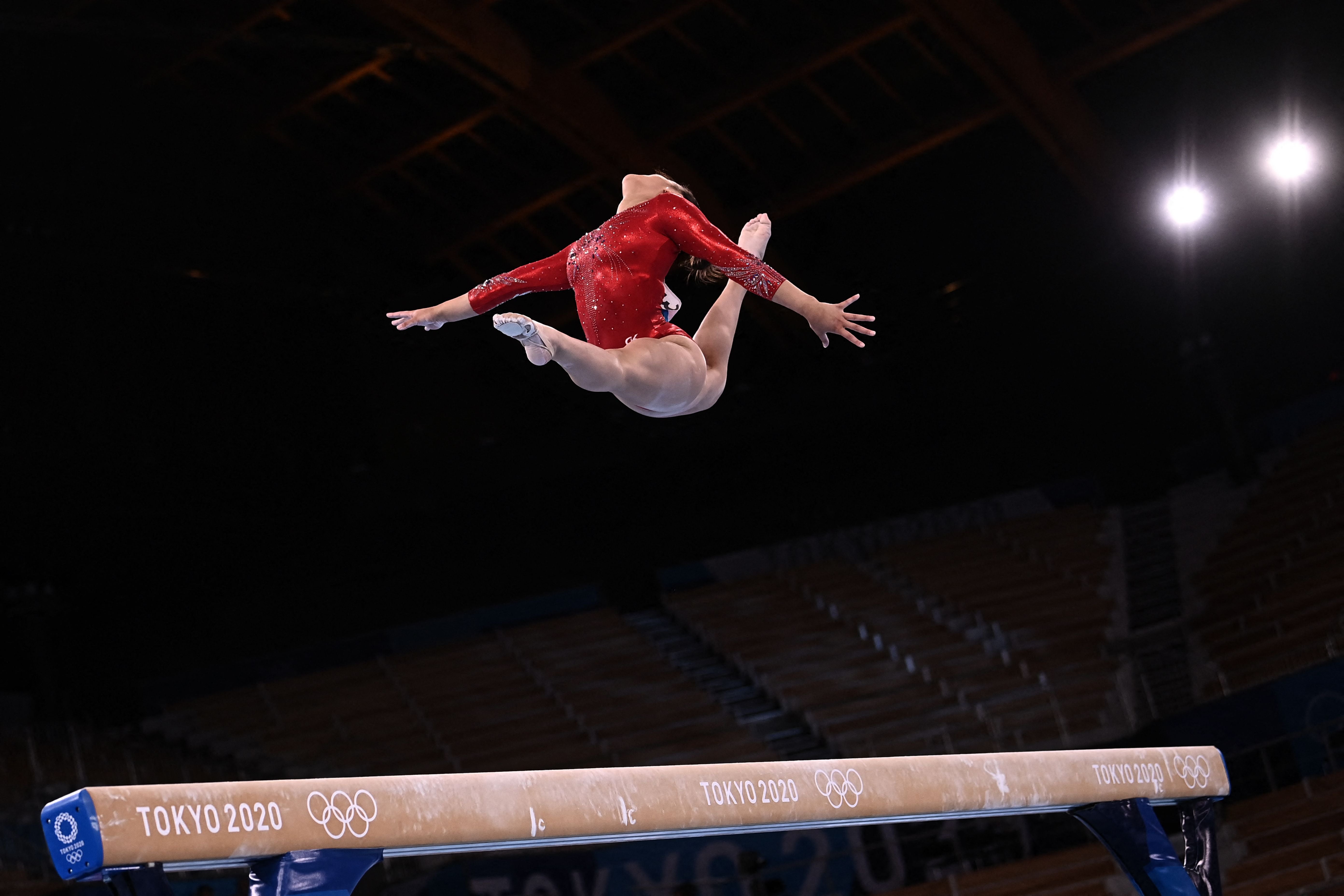Like Suni Lee, I blame Twitter for all my under-achievements
Agog at the athletic prowess on display at the Olympics, Will Gore tries to find an excuse for his chronic procrastination


The Olympics is at once the greatest sporting inspiration and the most desperate emphasiser of most people’s athletic inadequacy.
Twelve-year-olds are skateboarding to the podium; I couldn’t stand still on a board, let alone ride it. Swimmers complete four lengths of a pool in the time it takes me to do one – though I’m pretty sure my local pool is about half the size of the one in Tokyo, so I’m probably flattering myself. And l suspect my most productive activity in track and field would be building a sandcastle in the long jump pit.
There have been occasional hints of the strains that can accompany top-level sporting endeavours, most notably in Simone Biles’s withdrawal from most of the gymnastics events in order to protect her mental health. And I don’t suppose there are many serious people watching the Games who assume the triumphs come easily.
Still, for the most part, the displays of prowess are enough to leave a slightly flabby, often tired, middle-aged man to ponder on his shortcomings. That may explain why for me, the most memorable moment of the Tokyo Olympics came when another US gymnast, Suni Lee, blamed an imperfect performance on the fact that she’d been spending too much time on social media.
At last, something I could empathise with.
I mean, there may be an argument that any time spent on social media is too much. I wouldn’t go that far, but I recognise in myself a propensity to get sucked into Twitter threads, Facebook stories and various other online rabbit holes. I don’t post a great deal, but I like to know what’s going on; who’s saying what (about who). Late at night, I endlessly load and reload tweets, just in case something important in the world has happened, or someone I know has produced a faintly amusing bon mot.
And just like Lee, how much more could I achieve if I logged off? There’s the book I wrote for my kids, which I probably ought to re-edit and try to get published; there are the novels I have started but never finished; the absolutely hilarious screen-play that I’m confident could be a summer smash...
I know only too well that if social media didn’t exist, I would only find an alternative means to avoid doing the stuff I probably ought to be concentrating on
What’s more, if I deleted my apps, maybe I would make more of an effort to get back into swimming now that the pool down the road has re-opened. I should definitely ring my mate Leon and see if he fancies a game of badminton. And as my son has recently got into cricket, I really ought to “take a break” from Twitter and take him for net practise to explain the vagaries of leg spin. I could get my sporting career firmly back on track.
True, there is a modest discrepancy between Lee’s ‘under-achievement’ and my own. Her irritation was directed at her failure to take gold in the uneven bars, her favoured discipline. Never mind that she still came away with bronze, having already won a gold and silver in other events.
What’s more, Lee’s sudden social media distraction seems to have been a specific consequence of her own success, rather than a product of the deep-seated insecurity that probably lies beneath most Twitter addictions, including my own.
And anyway, I know only too well that if social media didn’t exist, I would only find an alternative means to avoid doing the stuff I probably ought to be concentrating on. Twitter and Facebook are merely two among many items in an arch-procrastinator’s toolkit. If I wasn’t on social media, I wouldn’t really be knuckling down to finishing a novel or doing my tax-return, or even arranging a healthy game of tennis with a friend. Instead, I’d be doing some non-urgent pruning, or checking a map in preparation for a walk I might do one day, or maybe just staring out of the window.
If procrastination was an Olympic sport, I’d definitely have a shot at gold – unless I found myself distracted by something less important.

Join our commenting forum
Join thought-provoking conversations, follow other Independent readers and see their replies
Comments